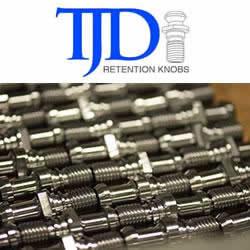Stäubli to Unveil Revolutionary Workflow for Injection Molding at NPE Show
An integrated solution using Stäubli's advanced technology in a smart factory setting will set new standards for efficiency and quality in injection molding
DUNCAN, S.C. (March 1, 2018) - Stäubli, the innovative systems provider for the plastics industry, will showcase a unique range of integrated solutions designed to improve efficiency and quality for injection molding at NPE2018: The Plastics Show (Booth #W4003) in Orlando, May 7-11.
Plastics processing companies around the world are encountering increasingly stringent demands on the design and quality of injection-molded parts along with a wider range of product variants, which leads to a reduction in batch sizes. This has created an increasing frequency of mold changes, which hinders productivity efforts.
Stäubli will display a pioneering demo cell that demonstrates all the essential process steps of a fully automated injection molding machine. Networked Industry 4.0-compatible components enable each of the individual processes to be coordinated and optimized to create an automation solution that illustrates how easily a complex task can be improved using Stäubli's integrated technology.
"The demonstration cell perfectly showcases Stäubli's SMED - Single-Minute Exchange of Die," said Phil Briggs, Fluid Connectors Division Manager, Stäubli North America. "These superior QMC solutions allow the exchange of injection molds to be performed to the highest safety standards within minutes. Stäubli is leveraging all of its core competencies to present a revolutionary workflow that will improve efficiency and quality."
Stäubli's mechatronics experience in robotics, sensors, magnetic clamping, rapid connection devices, tool changers, trolleys and electrical connections enables its QMC system to work quickly and safely within minutes. The QMC demo cell features a step-by-step presentation of each of the technologies involved.
"To ensure maximum process reliability, all components of the process coordinate and relay their status at every step," said Briggs. "Stäubli integrates sensors that detect the condition of the mold, the molding force of the magnetic clamping system and a variety of other factors and feed that data into the process. Any faults, like a failure to reach the correct operating temperature, will be recognized early so the fault can be corrected, thereby maximizing efficiency and safety."
The automation of injection molding machines and the upstream/downstream processes in the molding of products increasingly requires faster process speeds, greater process accuracy and more flexibility in terms of connectivity and integration. In order to fulfill these requirements, Stäubli has assembled a product portfolio that is tailored to the needs of the plastics industry, offering smart automation solutions for injection molding machine manufacturers, integrators and end users.
Learn more about Stäubli's latest solutions by visiting booth #W4003 at the Orange County Convention Center in Orlando May 7-11, or visit www.staubli.us for more information.
About Stäubli North America
Stäubli North America's headquarters is located in Duncan, S.C., and employs more than 200 workers supporting Connectors, Robotics and Textile customers. The team includes local sales engineers throughout the US, Canada and Mexico.
Stäubli is a leading manufacturer of textile machinery, quick release couplings and robotics systems. With a global workforce of more than 4,500 employees, Stäubli is present in 25 countries and is supported by a comprehensive distribution network in 50 countries worldwide.
Featured Product

T.J. Davies' Retention Knobs
Our retention knobs are manufactured above international standards or to machine builder specifications. Retention knobs are manufactured utilizing AMS-6274/AISI-8620 alloy steel drawn in the United States. Threads are single-pointed on our lathes while manufacturing all other retention knob features to ensure high concentricity. Our process ensures that our threads are balanced (lead in/lead out at 180 degrees.) Each retention knob is carburized (hardened) to 58-62HRC, and case depth is .020-.030. Core hardness 40HRC. Each retention knob is coated utilizing a hot black oxide coating to military specifications. Our retention knobs are 100% covered in black oxide to prevent rust. All retention knob surfaces (not just mating surfaces) have a precision finish of 32 RMA micro or better: ISO grade 6N. Each retention knob is magnetic particle tested and tested at 2.5 times the pulling force of the drawbar. Certifications are maintained for each step in the manufacturing process for traceability.
